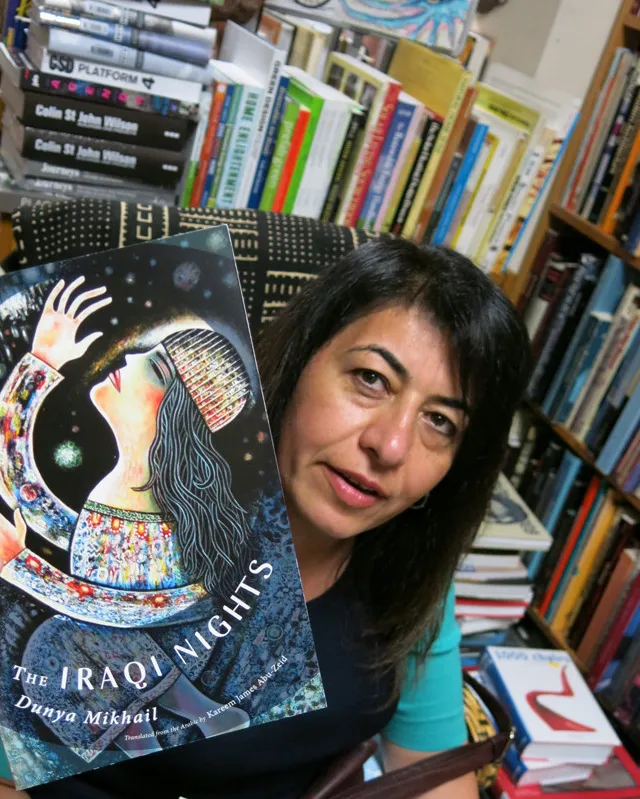

Dunya Mikhail is a powerful poet, deceptively simple in person and on the page. I was fortunate to meet her and encounter her soulful work, when I was invited to read with her at the San Francisco International Poetry Festival, some years ago, thanks to poet laureate Jack Hershman. Dunya and I did not share a stage; I read in smaller venues, she in the main hall, which she packed. She was the first, perhaps, only poet whose books sold out and quickly.
The war-ravaged poetry Dunya shared with us was, curiously, not heavy. Hers is a plain-spoken verse, that uses "easy" words to convey complex emotions: homelessness, hopelessness, identity, great suffering and endurance. In person, she is the picture of humility, standing unassumingly alongside her translator (even though she speaks fluent, accented English, she writes in Arabic). Occasionally, and good-naturedly, she would take over the translating duties herself, trying to find a better fit in her adopted language and home for her foreign pain. Always, self-deprecating and unexpectedly funny, silly even. She came across as a wise child and I'm happy to say that we soon became friends.
Below, are a few poems of hers, quietly devastating, surreal and important in these unfortunate times, when our fear of others often outweighs our compassion:
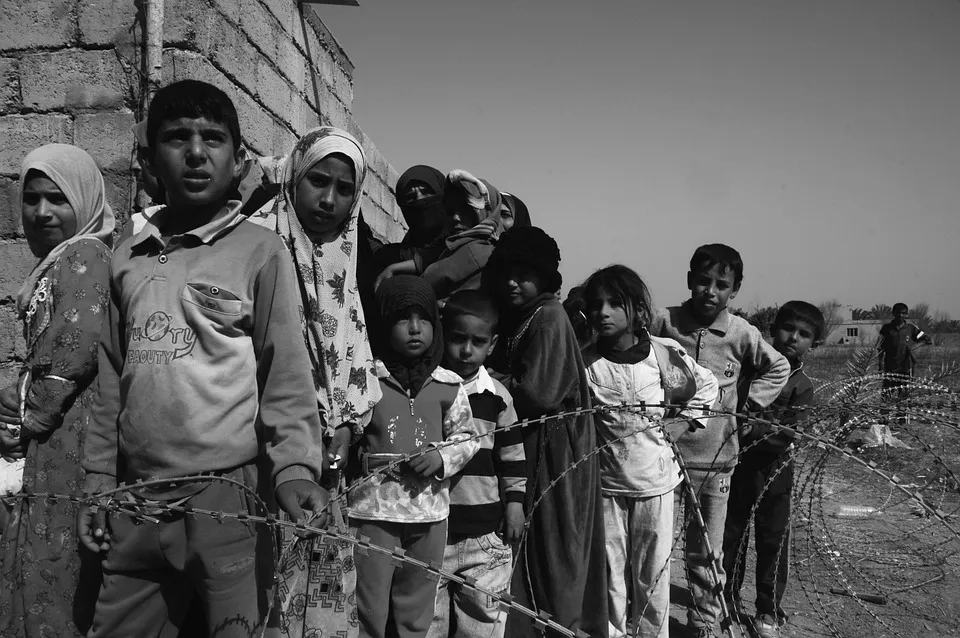
Yesterday I lost a country.
I was in a hurry,
and didn't notice when it fell from me
like a broken branch from a forgetful tree.
Please, if anyone passes by
and stumbles across it,
perhaps in a suitcase
open to the sky,
or engraved on a rock
like a gaping wound,
or wrapped
in the blankets of emigrants,
or canceled
like a losing lottery ticket,
or helplessly forgotten
in Purgatory,
or rushing forward without a goal
like the questions of children,
or rising with the smoke of war,
or rolling in a helmet on the sand,
or stolen in Ali Baba's jar,
or disguised in the uniform of a policeman
who stirred up the prisoners
and fled,
or squatting in the mind of a woman
who tries to smile,
or scattered like the dreams
of new immigrants in America.
If anyone stumbles across it,
return it to me, please.
Please return it, sir.
Please return it, madam.
It is my country...
I was in a hurry
when I lost it yesterday.
Here's another, that should soften hardened hearts, who cannot see the humanity of those who must flee their homes, or fathom the great suffering that they are forced to escape:
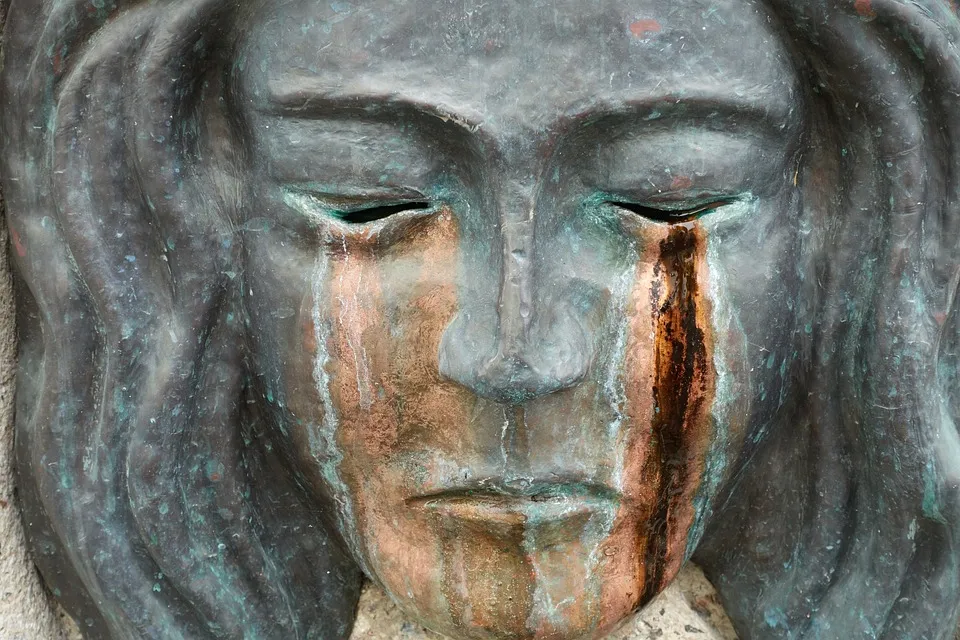
Tears
I work in a store for selling tears
in bottles of various sizes and shapes.
Crowded place, and no time
to bring handkerchiefs.
First in line is the woman
who comes every day
to buy these colorless drops.
For herself? For others?
Next, a newcomer.
He thought he would not leave his country
even if the mountain was removed from its place.
Next is a little boy with his grandmother.
They survived the flood, not exactly.
The woman at the end of the line
wants to return her bottle of tears.
She says it's not opened.
She thought she would need it
after the departure of her friend.
But she, instead,
kept going back and forth
between two parking spaces.
The sun left to the other half of the world.
Time to go home.
We are out of tears.
It's strange, for me, to call Dunya a "war poet" because she seems bigger than that, and she is. But, she addresses the collective moral failure that is war, specifically the Iraqi invasion (it seems odd to call it a war, when it was one-sided). Who's to say, maybe, much of the world-mess we're living in, now, is a result of this unjust and monstrous act of violence, murdering hundreds of thousands of innocent Iraqi civilians (possibly a million, figures vary). Maybe, too, to some extent, we are all implicated in this historical tragedy which has changed the way we live, now, and done irreparable, unimaginable damage. The hope is that we have learned something and do not repeat this madness, again, in the less--than-sane Age of Trump.
Dunya's poem, below, The War Works Hard drips with hallucinatory sarcasm, bitter irony, and should break your heart wide open...
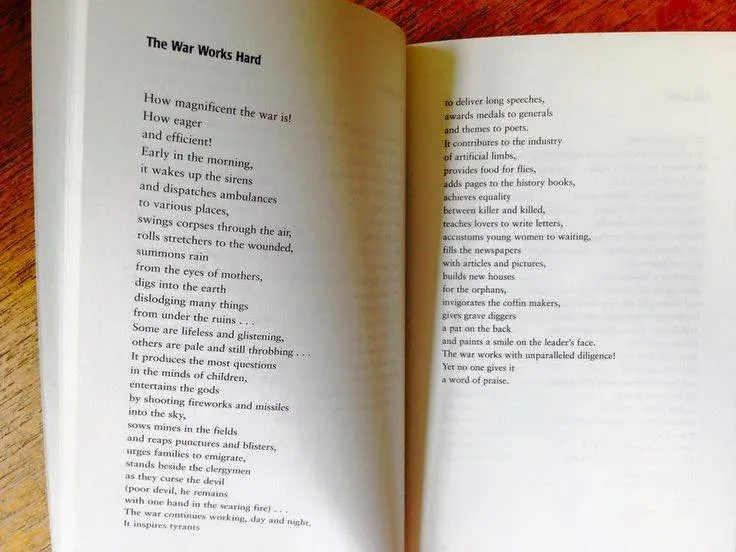
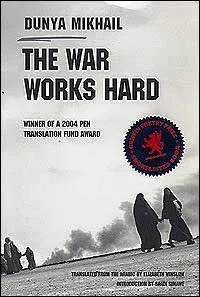
You can listen to Dunya read her stirring, urgent words on NPR, here:
"Poet Dunya Mikhail fled her homeland, Iraq, a few years after the first Gulf War. She had been questioned by Saddam Hussein's government, and state media had labeled her writing and poetry subversive."

(Photo of Dunya Mikhail by Cary Loren; others from Pixabay: Children of War by janeb13, Weeping Sculpture by joseph_Berardi )